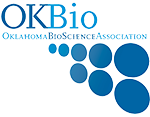Wei Chen, Ph.D., is a pioneering scientist at the University of Central Oklahoma who is exploring novel ways to treat late-stage, metastatic cancers.
A professor of biomedical engineering and dean of the College of Mathematics and Science at UCO, Chen became in 2017 the first scientist at a non-research university in Oklahoma to receive a coveted R01 grant from the National Institutes of Health.
Over the past two decades, he and his collaborators have worked to develop a new treatment for late-stage, metastatic cancers that combines laser irradiation and immunotherapy.
“Metastasis causes 90 percent of cancer related deaths,” Chen said. “We are still searching for an effective method for treating metastatic cancers.”
Chen developed a treatment method known as laser immunotherapy (LIT). LIT uses the combination of local laser irradiation and the local administration of an immunological stimulant to treat tumors. This induces system wide, anti-tumor responses within the immune system.
Dr. Chen’s laser immunotherapy treatment has been used successfully to treat breast cancers in clinical trials in Peru, as well as in a well-documented case involving an Oklahoma man with late-stage metastatic cancer.
“He was diagnosed four years ago with late-stage melanoma,” Dr. Chen said of the patient. “He was given three to six months to live. Then by chance he learned that I’m working on a new method for treating melanoma. He called me and I arranged for my collaborator to treat him with our methodology.
“After several sessions, we not only removed the melanoma on his head, but also destroyed the metastasis in his lungs,” Dr. Chen said. “Now after four years, he is healthy and tumor free.”
Chen’s technology has also been licensed by St. Louis-based Immunophotonics Inc., which is working to take the laser immunotherapy into U.S. clinical trials. He also includes UCO students – both graduates and undergraduates – in his research.
The NIH, through its National Cancer Institute, awarded Chen a five-year R01 grant, totaling $1.34 million, to support the continuation of work on his cancer treatment method. R01 grants are considered to be the gold standard of research grants.
Chen attributes the success in winning the NIH grant to Oklahoma support of his research more than a decade ago through the Oklahoma Center for the Advancement of Science and Technology (OCAST).
“OCAST funded me with an Oklahoma Applied Research Support (OARS) grant in 2000, which supported my research and allowed me to perform critical experiments to test the concept of LIT and lay the foundation for further study,” he said. “Then since 2016, OCAST has been funding me through a Health Research grant, which actually happened to fill the gap in the funding so I had the opportunity to apply for the NIH R01 grant.”
Dr. Chen is just one of the many innovators OCAST has funded over the past 30 years. Since 1988, OCAST has invested $285 million in 2,700 projects that have returned $6.5 billion to the state.
OCAST’s support of Chen’s research showcases just two programs from its broad menu of programs that enhance Oklahoma innovation. In addition to the OARS program and Health Research grants, OCAST support programs include Intern Partnerships, Small Business Research Assistance, Inventors Assistance Service and the Oklahoma Seed Capital Fund managed by i2E. The Oklahoma Manufacturing Alliance is a strategic partner of OCAST, as well.
“We are proud that OCAST’s support of Dr. Chen’s research resulted in a National Institutes of Health grant to further his work,” said C. Michael Carolina, OCAST executive director. “Beyond that, we’re hopeful that this groundbreaking technology will someday provide breakthrough treatment for late-stage cancers that impact the lives of millions of people worldwide.”
For Wei Chen, local support of his work established the groundwork that led to wider recognition.
“OCAST recognized the importance of my idea for this new concept for laser immunotherapy,” Chen said. “In many ways, OCAST support is instrumental to my research and leading to my R01 grant.”
